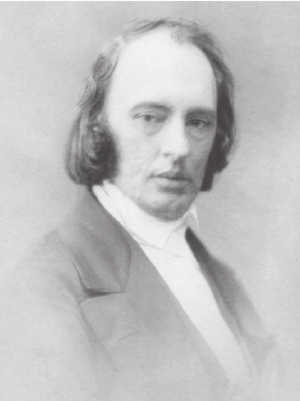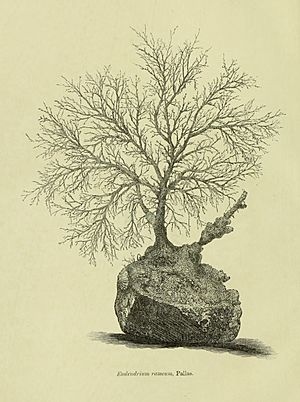Thomas Hincks (naturalist) facts for kids
Quick facts for kids
Thomas Hincks
|
|
|---|---|

Thomas Hincks
|
|
| Born | 1818 |
| Died | 25 January 1899 Clifton, Somerset, England
|
| Nationality | British |
| Alma mater | University of London |
| Known for | zoophytes bryozoa |
| Scientific career | |
| Fields | Natural history |
Thomas Hincks (born in 1818, died on January 25, 1899) was a British minister who also became a famous naturalist. A naturalist is someone who studies nature, especially plants and animals. He is best known for his important work on tiny sea creatures called zoophytes and bryozoa.
Contents
Early Life and Education
Thomas Hincks was born in Exeter, England. His father was William Hincks.
He went to Manchester New College from 1833 to 1839. At that time, the college was located in York. He later earned his Bachelor of Arts (B.A.) degree from the University of London.
A Minister's Path
After finishing his studies, Thomas Hincks became a Unitarian minister. He served in several different cities across the United Kingdom. These included Cork (in 1839), Dublin (in 1842), Warrington (in 1844), Exeter (in 1846), Sheffield (in 1852), and Leeds (in 1855).
While working at Mill Hill Chapel in Leeds, he unfortunately lost his voice. Because of this, he had to stop working as a minister.
His Scientific Work
After leaving his work as a minister, Thomas Hincks moved to Clifton. There, he decided to focus on his passion for studying nature. He spent his time researching zoophytes, especially those found in the Devon area.
He wrote two very important books about these sea creatures:
- A history of the British hydroid zoophytes (published in 1868)
- A history of the British marine Polyzoa (published in 1880)
These books helped other scientists learn a lot about these tiny animals.
Recognized for His Contributions
Thomas Hincks's hard work and discoveries were recognized by the scientific community. In June 1872, he was elected as a Fellow of the Royal Society. This is a very high honor for scientists in Britain.
To show how important his work was, at least six different groups (genera) and 13 different types (species) of tiny sea creatures have been named after him.
 | Bayard Rustin |
 | Jeannette Carter |
 | Jeremiah A. Brown |


